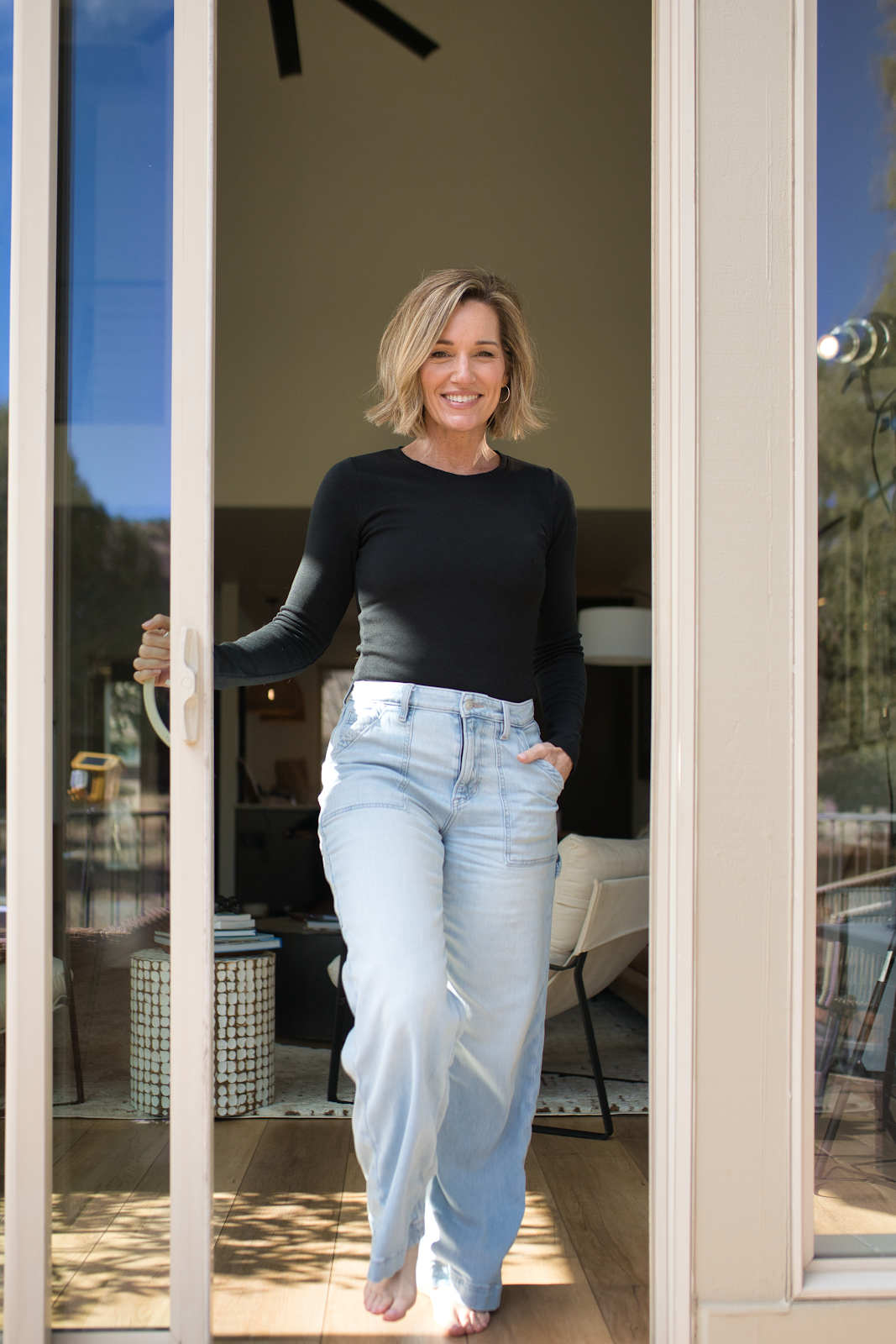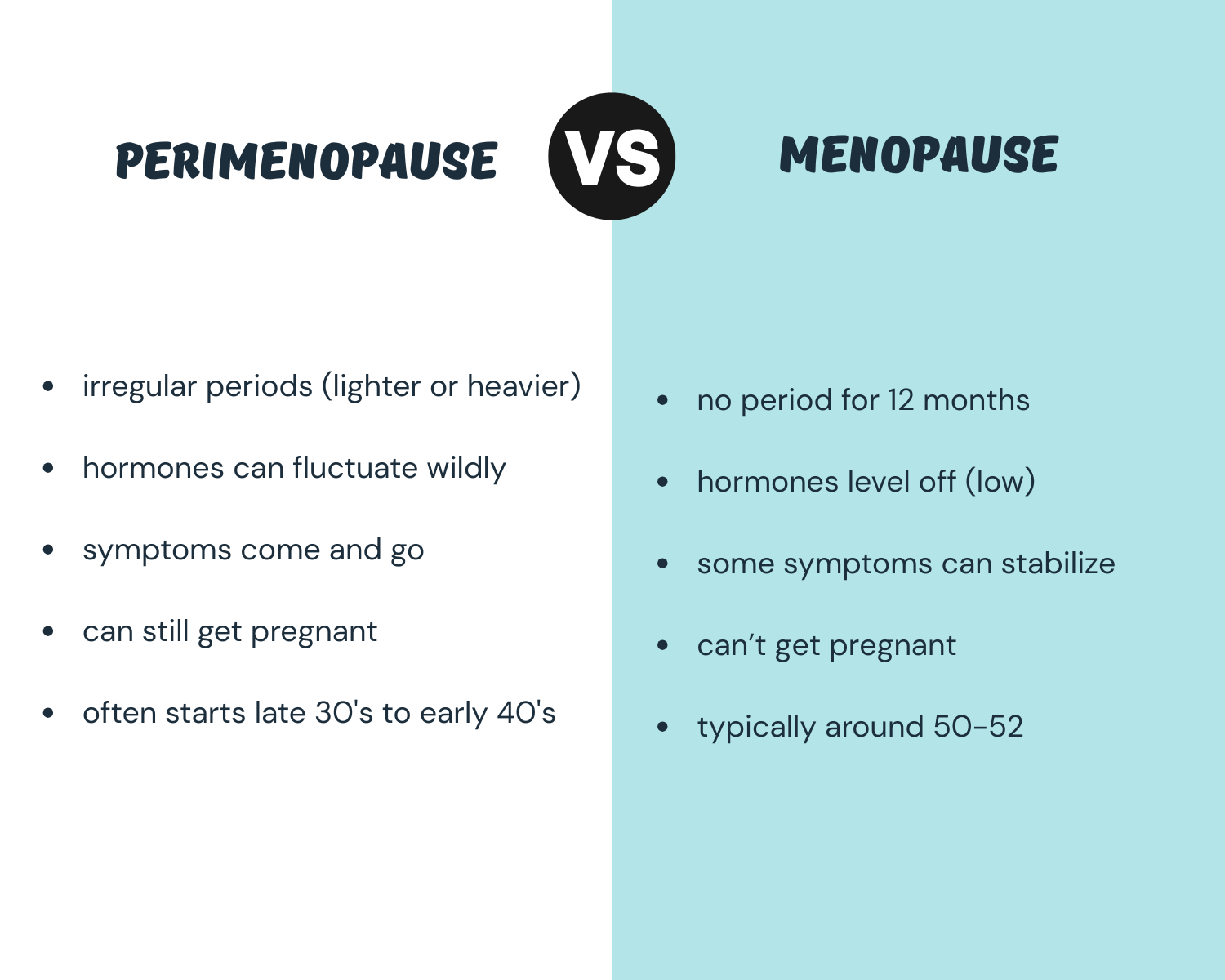Perimenopause vs. Menopause: What’s the Difference And What Can You Actually Expect?

If you had told me years ago that one day I’d be Googling “why am I waking up at 3 am?” or “why do I want to throat punch my husband for loading the dishwasher wrong”, I wouldn’t have believed you.
But here we are.
A couple years ago, I found myself squarely in the perimenopause trenches. Tired, irritable, and seriously questioning my own sanity.
What I’ve learned since then? There’s a lot more to midlife hormones than we were ever taught, and knowing the difference between perimenopause and menopause is the first step in feeling more empowered and less…punchy.
For years, I thought menopause was just one big moment, like a light switch flipping off. Turns out, it’s more like a dimmer switch, slowly changing over time. And that slow change? That’s perimenopause. If you’re wondering what’s happening to your body and what to expect, let’s talk about it.
Wait, So What Is Perimenopause? Understanding the First Stage Before Menopause
Think of menopause as a destination and perimenopause as the long, bumpy road trip leading there. It usually starts in your late 30s to early 40s and can last anywhere from a couple of years to over a decade (I know, buckle up).
During this time, your ovaries gradually produce less estrogen, leading to all kinds of hormonal shifts.
Common Symptoms of Perimenopause:
- Irregular periods (shorter, longer, heavier, ghosting you entirely)
- Hot flashes and night sweats
- Mood swings or increased anxiety
- Brain fog (Wait… what were we talking about?)
- Poor sleep
- Weight gain (especially around your midsection)
- Joint and muscle aches
While these symptoms can be frustrating, understanding what’s happening can make them feel a little less overwhelming. Trust me, you’re not alone, and you’re not crazy, either.
So, What’s Menopause Then?
Believe it or not, menopause is technically one day, the 12-month mark since your last period. The average age in the U.S. is 51, but it can happen earlier or later. After that? You’re considered postmenopausal.
The big difference? Your ovaries stop releasing eggs, and hormone levels settle (usually at much lower levels). Some symptoms calm down. Others, like hot flashes, might still stick around for a while. Every woman’s journey is unique.

How to Feel Like You Again
This part of life is wild, but it doesn’t have to wreck you. Here’s what’s helped me feel stronger, steadier, and a little more sane:
1. Lift Heavy Things
No, not just your toddler-sized purse or 12 grocery bags at once.
Strength training is the real deal for women over 40. It helps keep bones strong, builds muscle (which we lose faster now), and supports hormone balance. Dr. Stacy Sims says this is the time to train smart and lift heavy.
2. Up Your Protein Game
I used to think I ate “pretty healthy.” Turns out, I was under-eating protein big time. Now? I aim for about 1 gram of protein per pound of ideal body weight, and it’s been a game changer for energy, muscle, and keeping cravings in check.
3. Stress Less (No, Really)
When estrogen drops, your ability to handle stress can drop with it. Cortisol (your stress hormone) becomes a diva, wreaking havoc on your mood, sleep, and belly fat. Managing stress isn’t a “nice to have,” it’s non-negotiable.
Things that help me: walking, lifting weights, deep breaths, talking to my dog, dancing in my kitchen. Do what works for you.
4. Find Your People
This phase of life can feel isolating, but it doesn’t have to be. Whether it’s a group chat with your besties, a Facebook group, or a fitness program of other women who get you, connection makes all the difference.
According to Dr. Lisa Mosconi, in her book "The Menopause Brain”, women who stay socially connected experience fewer symptoms and support better brain health. She highlights that maintaining strong social connections can help mitigate symptoms such as mood swings and cognitive changes, contributing to overall brain health.
So yes, coffee dates are medicinal.
Final Thoughts: You’re Not Broken, You’re Evolving
Perimenopause and menopause aren’t things we “get through.” It’s a powerful transition. And with the right tools, habits, and community, this chapter can be one of your most empowering yet.
So here’s to sleeping better, lifting heavier, eating smarter, laughing more, and maybe even having the hubs load the dishwasher your way so you don’t lose your cool.
Let’s make this phase the BEST phase.
Get started with your midlife fitness journey!
join my app and let’s do this, one workout at a time.
